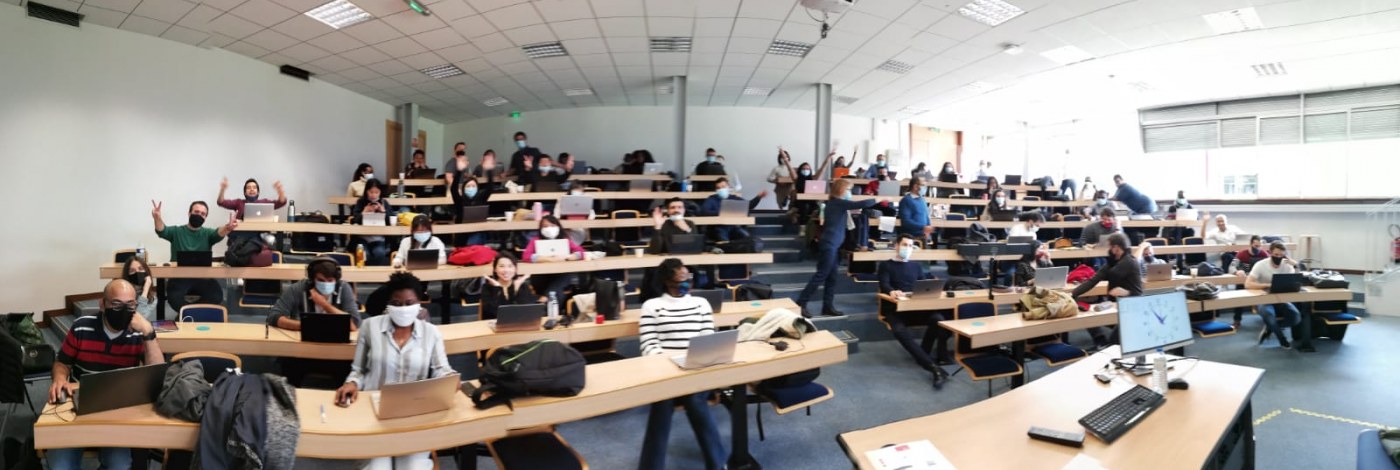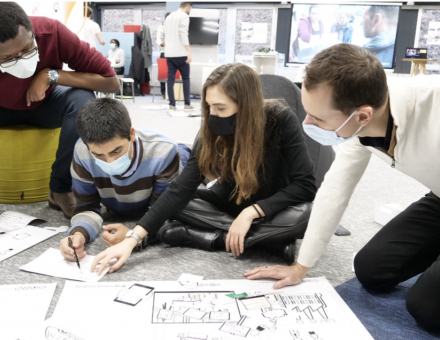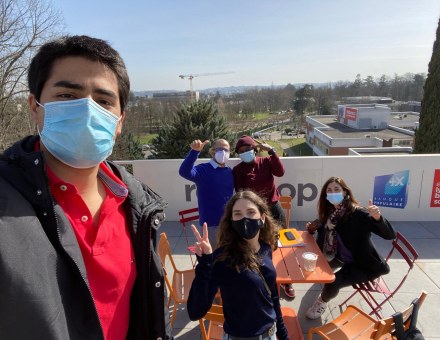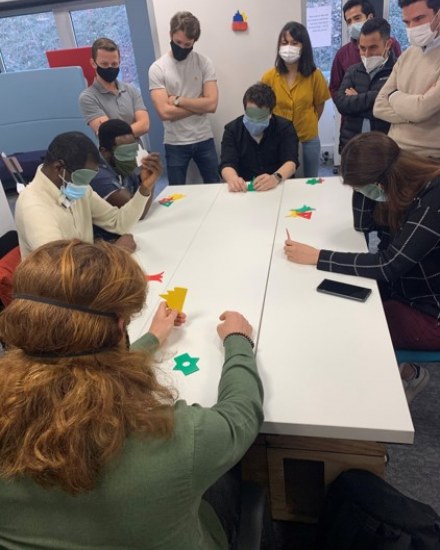Taking a program such as an International MBA in a school that makes high demands of top-notch students is an intensive learning experience in normal times, let alone in the pandemic-dictated context in which emlyon business school students currently find themselves. A trio of international students share the day-to-day life to which they have grown accustomed and learned to make the most of.

Little did Sierra Parker, Sara Dia and Rodrigo Garcia Arguijo know when they moved from their native USA, Lebanon and Argentina respectively that they would embark on a year-long MBA like no other before. With 75% of classes delivered up to the time of writing on campus, they have emerged relatively unscathed. In fact, emlyon business school stands out as one of the few French business schools to have continued classes on campus, many other institutions having chosen to go 100% online. However, as France enters its third nationwide lockdown in 12 months, they now approach matters better equipped to deal with the many challenges of communication, time management and social life that they have got to grips with over the past year. For Rodrigo, one thought keeps him going: “it’s been tough, but we’ve become more resourceful and learned to maximize the short moments of social time we get to enjoy together. One thing for sure, is that we are going to seriously celebrate the end of the crisis!”
To chat or not to chat?

Whilst the importance of the social side is never to be underestimated, the first aspect of student life to take a hit is most obviously studies and the dynamics of teaching. For Sara this requires adaptation from all parties: “not all professors have the same approach to online classes, so we have to handle large group webinars where we ultimately just listen, smaller group sessions where we can dialogue via the online written chat options or occasionally more dynamic set-ups where we are encouraged to speak. Success is often based on numbers, depending on whether we’re in a full group of 60 or a smaller batch of maximum 30”. Especially appreciated by all are the more proactive, creative professors who organize virtual breakout sessions, such as in their Macro and Microeconomics classes. However, for Sierra, the smaller groups have one downside: “one regret is that we are only meeting and interacting with half the class the majority of the time when we have classes on campus. The health reasons are obvious but it’s a shame to miss out on working with 50% of our classmates”. Despite this, the students have still managed to create close relationships and to get to know each other. In addition, that studying in such a way prepares them for the challenges they will face as managers in this changing economy, now that businesses are moving towards more remote working and online activity.
Sociable distancing

With extracurricular activities at a premium, all students have learned to make the most of their increasingly rare moments of downtime together, a feeling shared by Rodrigo. “Curfew has made not only groupwork a challenge but also mingling socially, especially if you live off campus. We now find excuses to socialize as well as naturally wanting to do so. But trust me, we manage!”. For Sara, support is there for those struggling with the situation: “the student network is vital at times like these and clubs are still operating to a certain extent, so we are not devoid of activities. We just have to organize our time in a more creative way. Some students are tending to sleep in a lot more as they don’t have to attend as many classes in person. This is understandable but not a habit to get in to. Maintain social distancing, yes, but stay sociable!” However, Sierra sounds a cautionary note, based on her own experience and role as International MBA class representative. “it’s crucial to prioritize direct contact with people when you can, stay focused on your studies, and optimize what little time you have with friends and classmates. It’s for this reason we have in place a virtual care pyramid designed to support students struggling on the mental side of things. We have had virtual apéritifs, played charades and even had cooking lessons.”
The best of a bad situation

It’s not all doom and gloom for the trio, either in terms of studies or extracurricular activities. A host of online tools including Zoom, WhatsApp groups, Kahoot, Menti, Doodle, and Microsoft teams enables them to keep up to speed with studies and engage in groupwork when not on campus. Teachers continue in their best efforts to innovate when delivering virtual classes to maintain full attention and interest. Lunchtimes have become a near-communion during which all students convene and make the most of their limited free time together, while those running activities dialogue with the school to see what can be offered in terms of premises for possible events, health restrictions permitting. For Sierra, Sara and Rodrigo, the message to the next cohort of students is clear: “be open-minded about the student life that potentially awaits, use your work and leisure time wisely, and party when it’s all over!”


